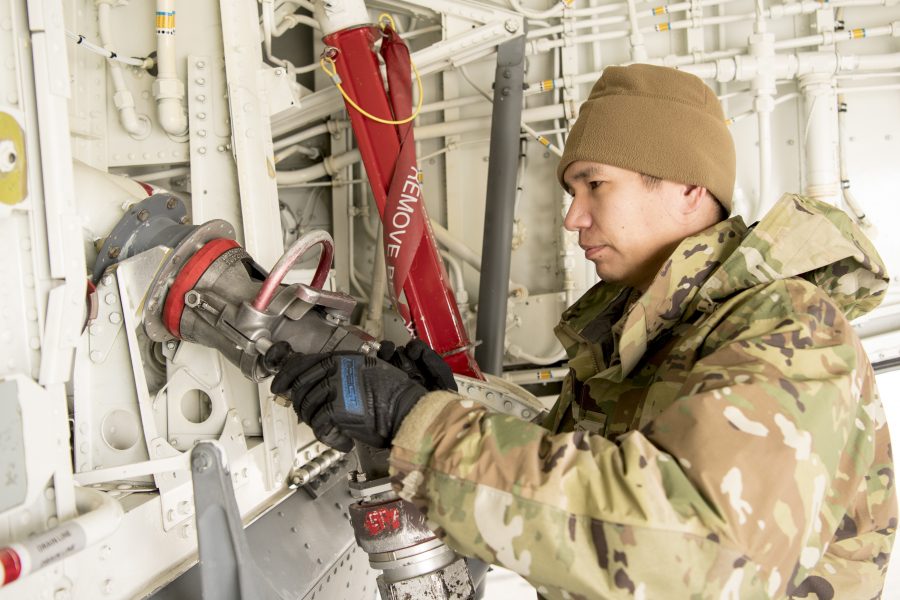The Defense Department’s newly extended travel ban provides additional leeway to bring troops home from deployments, as Air Force officials try to figure out how to meet the service’s highest priority needs if the ban is extended yet again.
The Pentagon’s stop movement order, originally announced in mid-March with an expected end date of mid-May, was extended through June because of the “global nature of the Department of Defense enterprise,” Matt Donovan, the under secretary of defense for personnel and readiness, told reporters April 18. “We have service members stationed in all 50 states with innumerous foreign nations across the globe. While many areas in the United States may be on a positive trajectory, some areas and many nations are not.”
The policy change loosens guidelines for waivers aimed at operational deployments and redeployments, recruiting and basic training activities, temporary duty to travel or permanent change of station moves, and medical treatment, Donovan said. The policy will be reviewed every 15 days, with the end date possibly shifting based on current conditions regarding the coronavirus outbreak, he said.
U.S. Transportation Command has been moving personnel and materiel at about 30 percent of its normal rate since the original ban was announced, Donovan said.
Air Force Chief of Staff Gen. David Goldfein, in an interview before the policy change was announced, said the stop movement ban had so far been “manageable,” though he acknowledged “some level of pain for Airmen and families” who had a plan, were all packed, and were ready to move.
USAF major commands are handling the ban and related waivers on an Airman-by-Airman basis, Goldfein said.
USAF continues to look at longer-term options if the ban is extended further into 2020.
“We’re doing what the military does best, we’re planning, planning, planning,” Goldfein told Air Force Magazine.
Nuclear deterrence, ongoing combat operations, and rapid global mobility, are among USAF’s essential missions and will continue unabated. “We’ve got to do that, even with the stop movement order,” Goldfein said.
